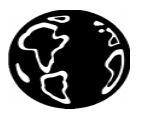What is GCSE Geography?
GCSE Geography is an exciting course that allows you to develop your understanding of local, national and global matters by looking at important world issues.
Course Detail
| Qualification | Exam Board | Specification |
| GCSE Geography | AQA | 8035 |
Department Leader
Mr G. Faircloth
Department Leader for Geography
Course Overview
The video below explains the different topics you will study on the Geography course:
You will study:
Living with the Physical Environment
- The Challenge of Natural Hazards – earthquakes, volcanoes, hurricanes and storms, and the global topic of climate change.
- Physical Landscapes in the UK – studying our vanishing coastlines and how the UK was shaped by our glaciers
- The Living World – the impacts of deforestation, and a case study of a cold environment i.e. Svalbard, whilst investigating the climate, animals, and plants of these biomes.
Challenges in the Human Environment –
- Urban Issues and Challenges – learn about the slums of Rio and the changing world of Newcastle.
- The Changing Economic World – investigate how population patterns change, the influence of oil in Nigeria, and the changing economic patterns in the UK.
- The Challenge of Resources – Learn about the importance of our resources in the UK and across the world
Geographical Applications – Problem Solving, Evaluation and Fieldwork
- Put the theory into practice as we take part in physical and human fieldwork investigations, visiting geographical landscapes right on our doorstep.
You will take 3 final exams at the end of Year 11 – the Physical and Human papers are worth 35% each, and the Skills paper is worth 30%. To prepare for the fieldwork part of the Skills exam you will visit the North East coast, investigating tourist and beach landscapes. You may have opportunities to visit other areas of the UK. The second part of paper 3 involves the preparation of a pre-released booklet, based on a theme that you will study across the 2 year course. Throughout the course you will develop your literacy, numeracy and map skills. You will also broaden your awareness of how today’s world is constantly changing. Lessons include a variety of teaching and learning styles; using thinking skills, drawing, visual resources and problem solving. You will apply your knowledge to real places in the UK and around the world, and you will practise the skills needed to answer GCSE questions in detail.
Revision classes are held by all members of staff after school and there will be revision classes offered during school holidays in the lead up to exams.
With further study or training, GCSE Geography can lead to a wide range of careers, as it develops skills that employers find really valuable – problem solving, knowledge of place, data analysis, literacy, numeracy, good communication and team work. Possible careers include education, chartered surveyor, environmental officer, industry, disaster or aid worker, town planner, armed forces, pilot, travel industry, earth sciences, explorer and accountancy.
Got A Question?
If you have a question about Geography you can use the form below to contact Mr Faircloth, Department Leader for Geography.



 Important Notice – Year 9 Options
Important Notice – Year 9 Options